Jules Verne’s Chinook Jargon in “César Cascabel”
“César Cascabel” is an 1890 novel by the famous Jules Verne. It’s one of his less well known works, in the English-speaking world.
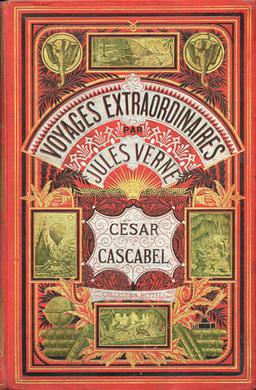
Image credit: Wikipedia
When I happened to find it in an English translation by A. Estoclet, I was amused to find that Chinook Jargon plays a part!
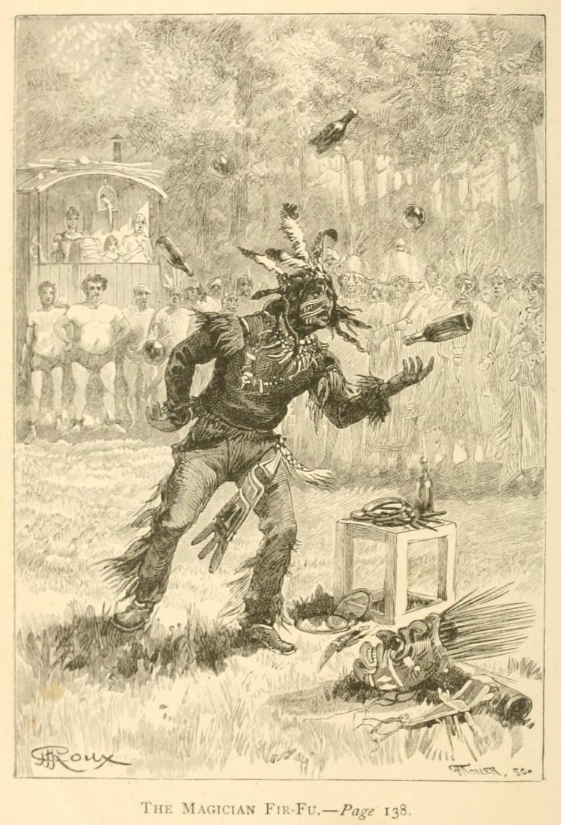
Frontispiece of the English-language edition: the “remarkable juggler” Fir-Fu of the Yukon
(I include this because it shows the real ongoing tendency of French-speakers to call Pacific NW medicine people “juggler”!)
Any Chinuk Wawa in here is fictional, however. There’s no indication Jules Verne could put together a sentence in the language. And he has folks talking Jargon in places where it’s never been known.
It’s still interesting to see how he makes use of it in his story set in 1867 — the time of the Russian Empire’s sale (!) of Alaska to the USA.
Here are some samples for you.
Pages 61-62, somewhere along the Fraser River in British Columbia’s “Chilicot” (Chilcotin?) country, with a guide named Ro-No, who “belonged to one of those tribes whose tyhis, or chiefs, have frequent intercourse with Europeans” (page 60):
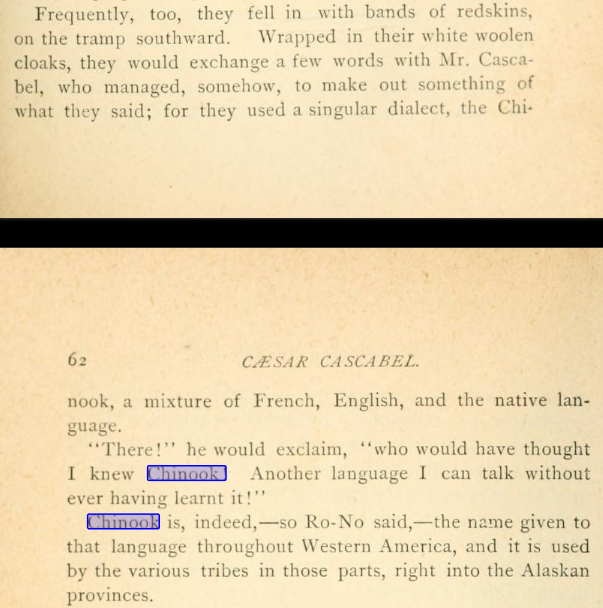
Frequently, too, they fell in with bands of redskins,
on the tramp southward. Wrapped in their white woolen
cloaks, they would exchange a few words with Mr. Casca-
bel, who managed, somehow, to make out something of
what they said; for they used a singular dialect, the Chi-62
nook, a mixture of French, English, and the native lan-
guage.“There!” he would exclaim, “who would have thought
I knew Chinook! Another language I can talk without
ever having learnt it!”Chinook is, indeed, — so Ro-No said, — the name given to
that language throughout Western America, and it is used
by the various tribes in those parts, right into the Alaskan
provinces.
Pages 91-92, on the border with Alaska:
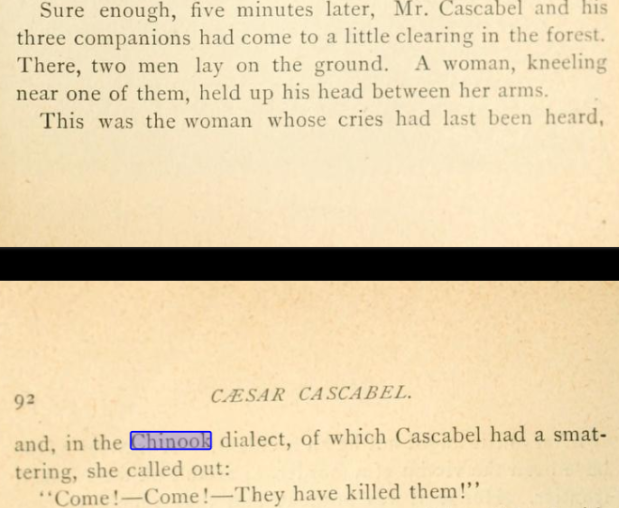
Sure enough, five minutes later, Mr. Cascabel and his
three companions had come to a little clearing in the forest.
There, two men lay on the ground. A woman, kneeling
near one of them, held up his head between her arms.
This was the woman whose cries had last been heard,92
and, in the Chinook dialect, of which Cascabel had a smat-
tering, she called out:“Come ! — Come ! — They have killed them!”
afdsafd
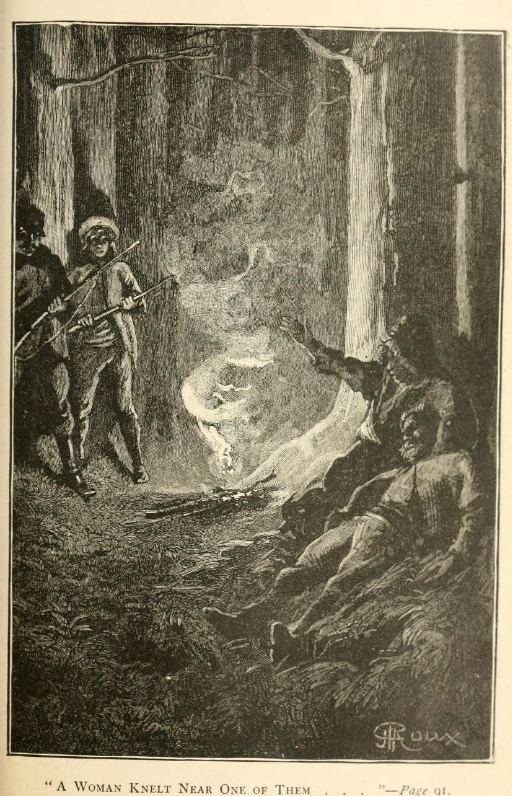
Page 134, at Fort Yukon, Alaska:

Of course, Mr. Cascabel had entered into conversation
with several of the Indians, by means of the Chinook
tongue with which he was slightly acquainted, whilst Mr.
Sergius questioned and answered them in Russian.
Page 136, same place:
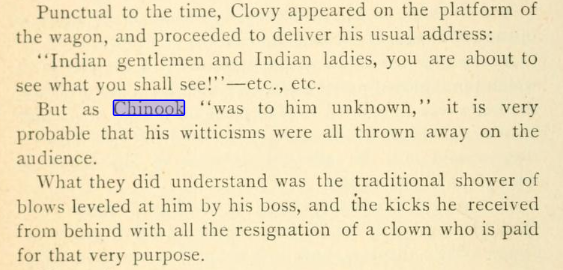
Punctual to the time, Clovy appeared on the platform of
the wagon, and proceeded to deliver his usual address:“Indian gentlemen and Indian ladies, you are about to
see what you shall see!” — etc., etc.But as Chinook “was to him unknown,” it is very
probable that his witticisms were all thrown away on the
audience.What they did understand was the traditional shower of
blows leveled at him by his boss, and the kicks he received
from behind with all the resignation of a clown who is paid
for that very purpose.

Were you able to check the French original?
LikeLiked by 1 person
Wel naw alta, hilu nayka mamuk pus mamuk kakwa. Kakwa-pus kaltash kopa nayka 🙂 (Nope. I didn’t bother.)
LikeLike